Last updated on
Discover the art of blending minimalism and nature in Japanese house designs, and get practical ideas for creating your own serene living space.
Japanese houses are like poetry turned into wood and paper—elegant, minimalist, and full of hidden surprises. But you’ve probably heard about tatami mats and sliding doors a thousand times already.
My goal? To uncover the unexpected, the quirky, and the truly unique aspects of Japanese homes that even your worldly friend hasn’t Instagrammed yet. Let’s dive into innovation, charm, and a pinch of the unexpected!
Tatami Mat Flooring
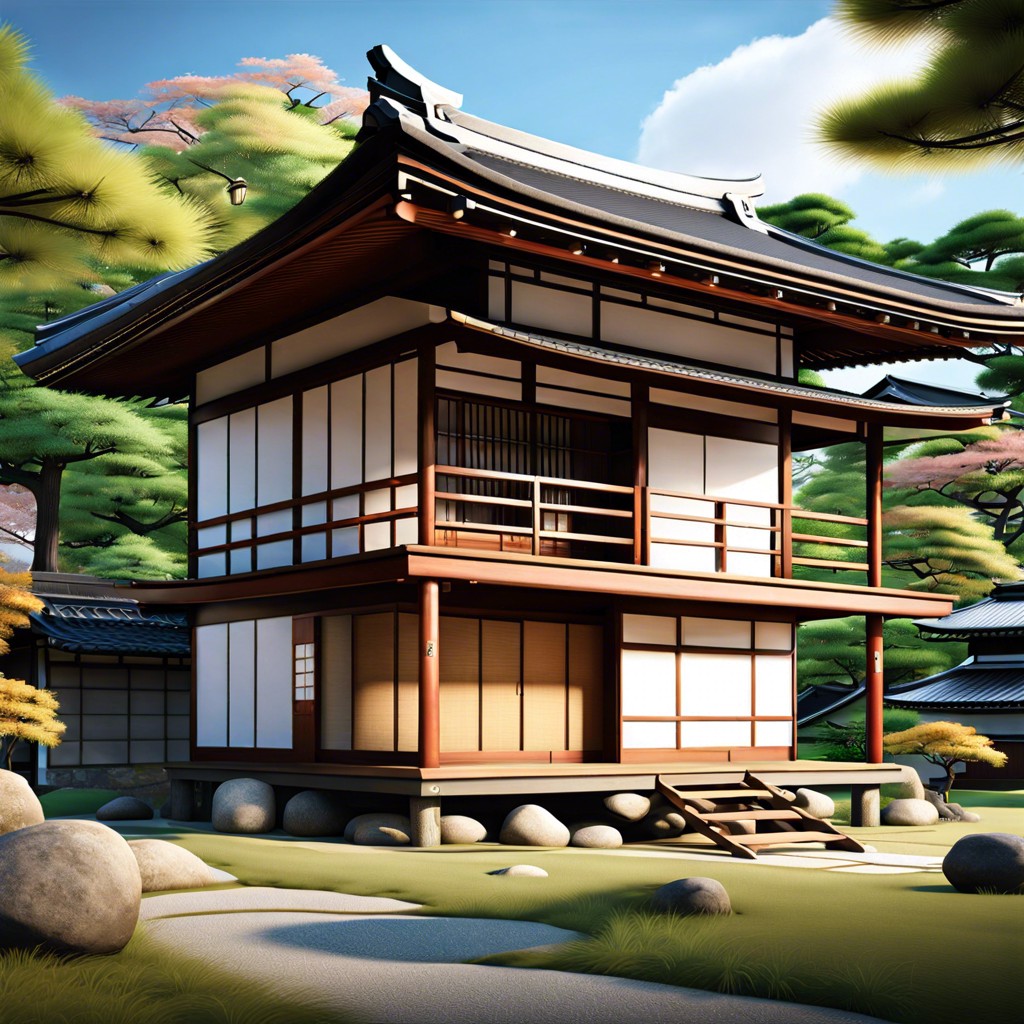
Tatami mat flooring in Japanese houses offers a traditional and comfortable surface for walking and sitting. These mats are made of straw and contribute to a peaceful and serene ambiance in the home.
Sliding Shoji Doors
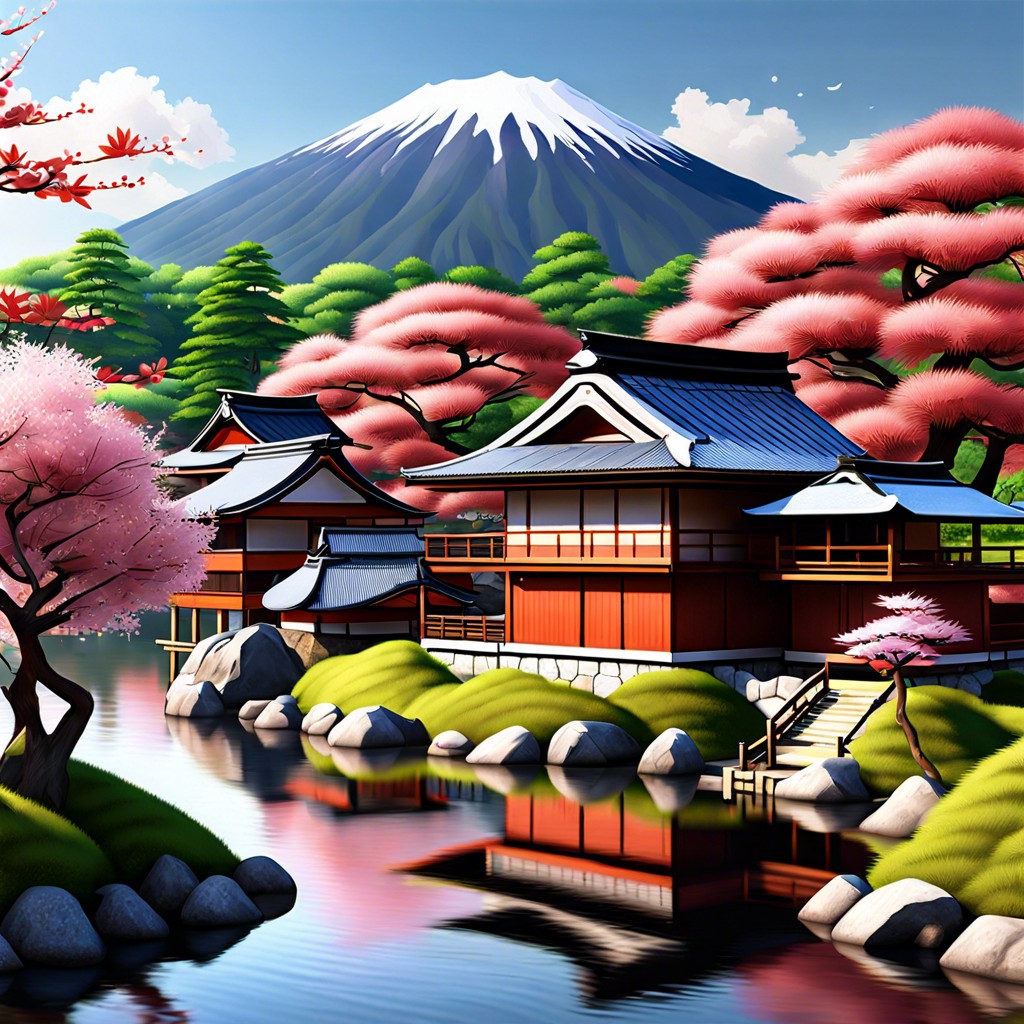
Sliding shoji doors in Japanese houses are traditional translucent doors made of paper on a wooden frame, used to divide spaces while allowing light to filter through. They add an elegant touch to interiors and create a sense of openness in the living areas.
Engawa Verandas
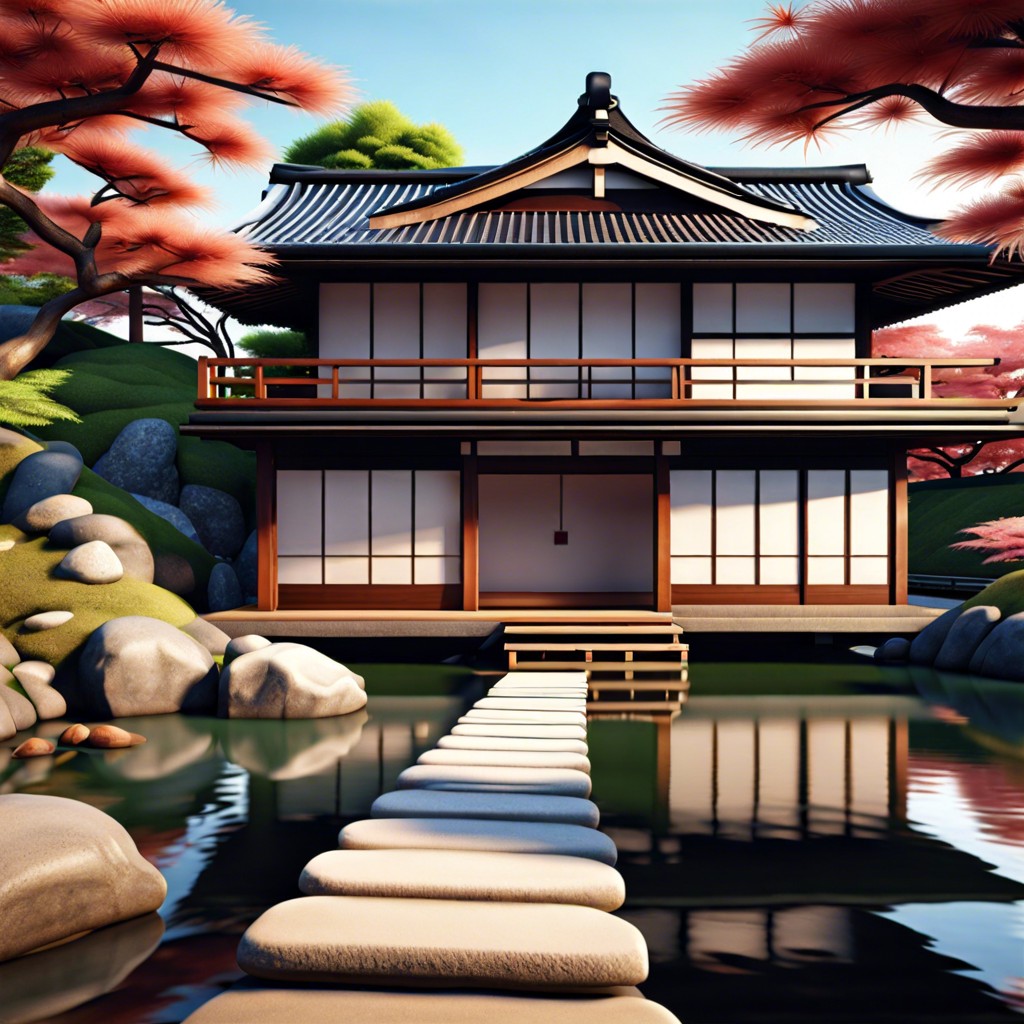
Engawa verandas are traditional Japanese house features that serve as transitional spaces between interior and exterior areas, offering a peaceful spot for relaxation. These unique verandas blur the boundaries between inside and outside, providing a serene connection to nature.
Zen Rock Garden
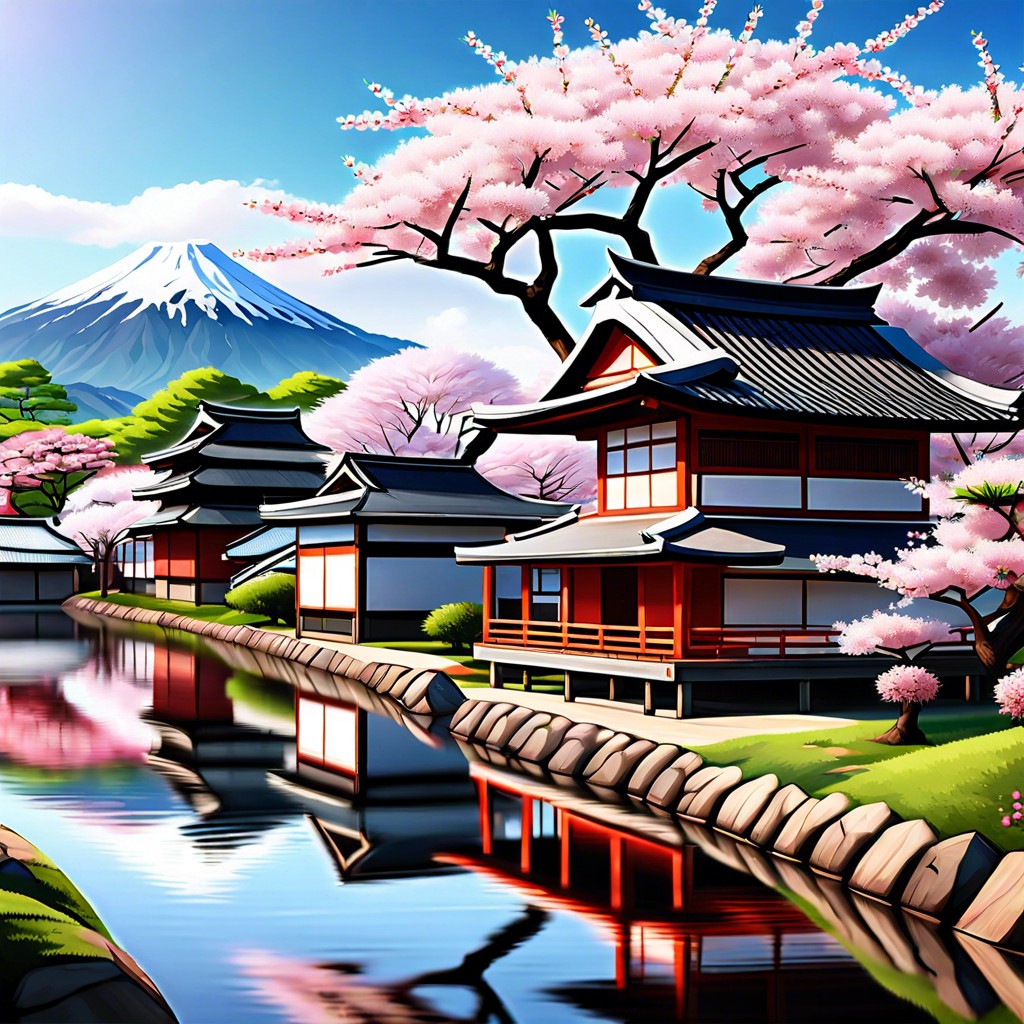
Zen rock gardens in Japanese houses offer a serene and meditative space with carefully placed rocks and gravel, symbolizing calmness and simplicity. They provide a peaceful retreat for contemplation and reflection, promoting mindfulness and relaxation.
Traditional Futons
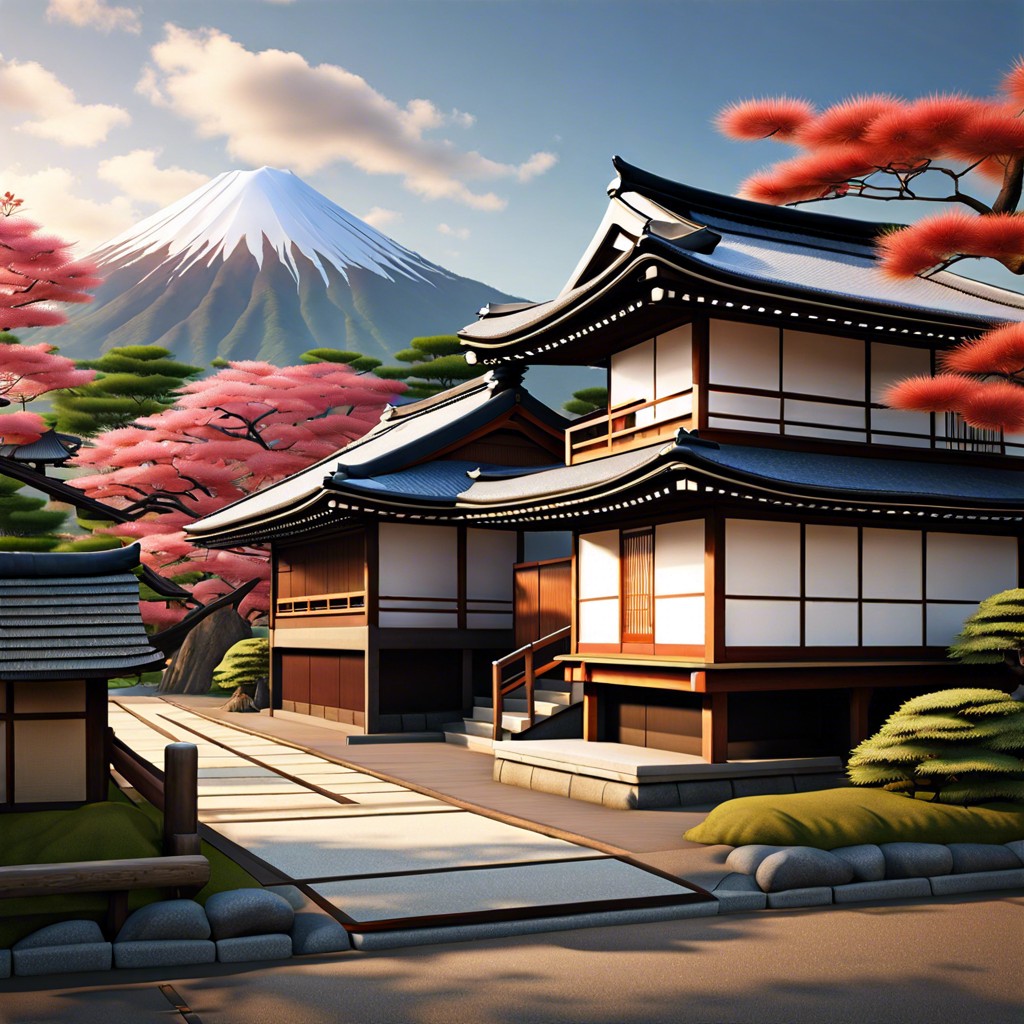
Traditional futons offer a cozy and versatile bedding option in Japanese houses. They provide a comfortable place to sleep and can be easily stored during the day.
Tokonoma Alcove

The Tokonoma alcove in Japanese houses is a raised platform used for displaying art or seasonal items. It serves as a focal point in the room to showcase beauty and elegance.
Bamboo Fencing
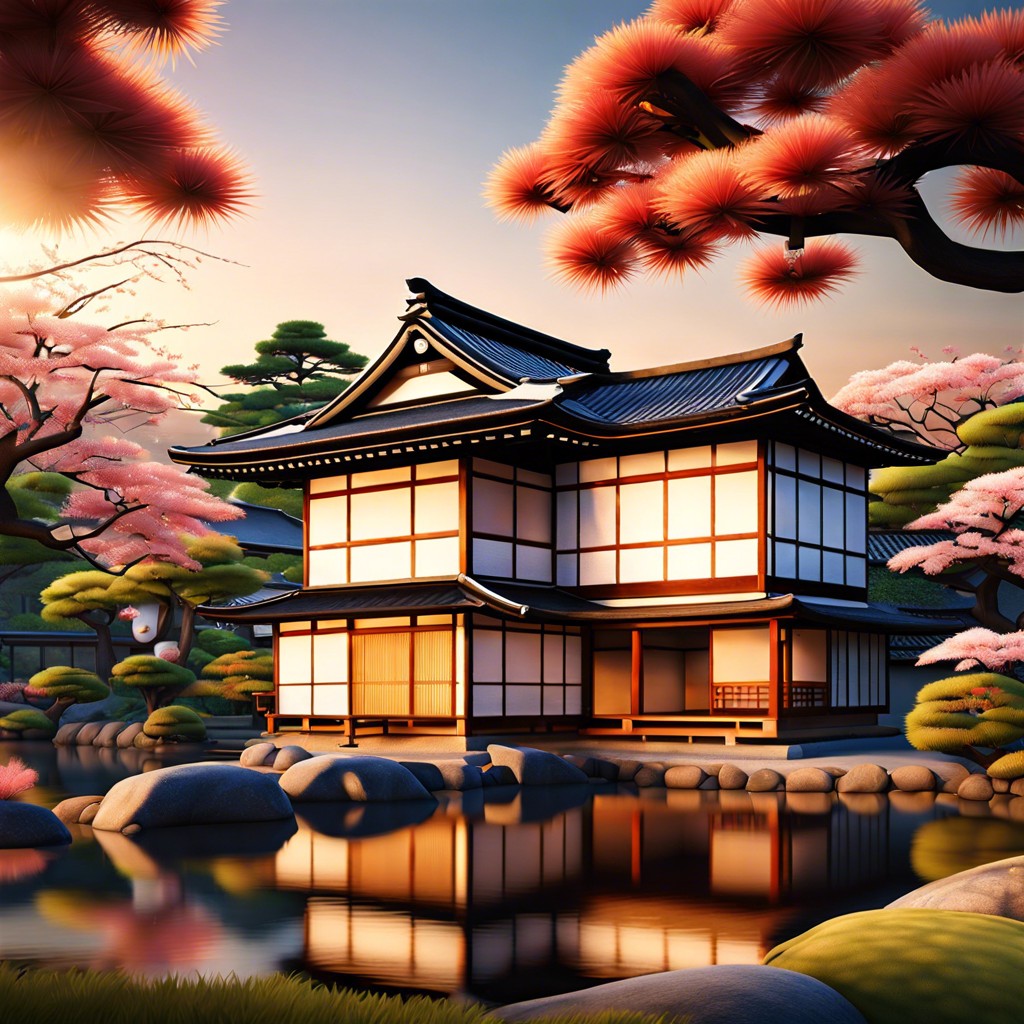
Bamboo fencing adds a touch of nature and privacy to Japanese homes, creating a serene atmosphere. Its organic aesthetic complements the traditional architecture beautifully.
Ofuro Soaking Tub
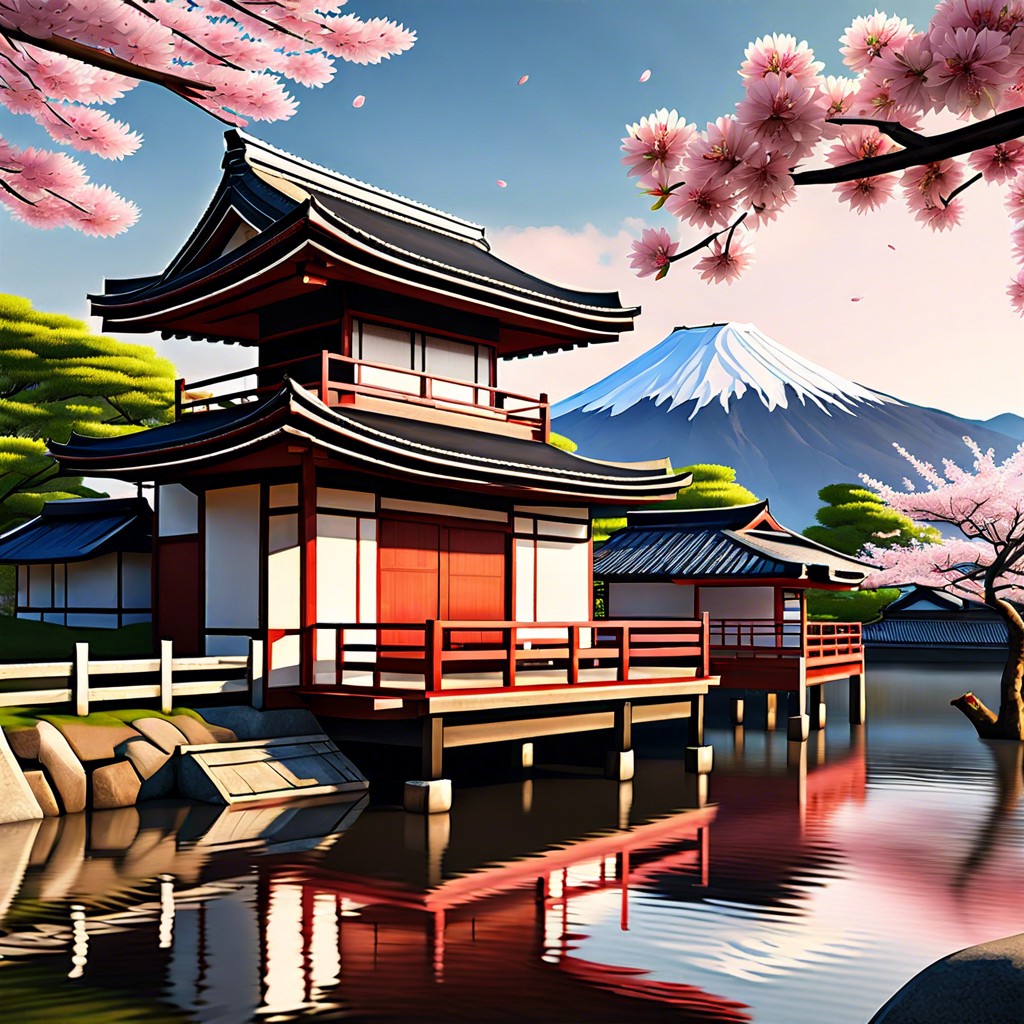
Ofuro soaking tubs are traditional Japanese bathtubs used for relaxation and rejuvenation. These deep wooden tubs are designed for soaking rather than washing.
Compact Garden Courtyards
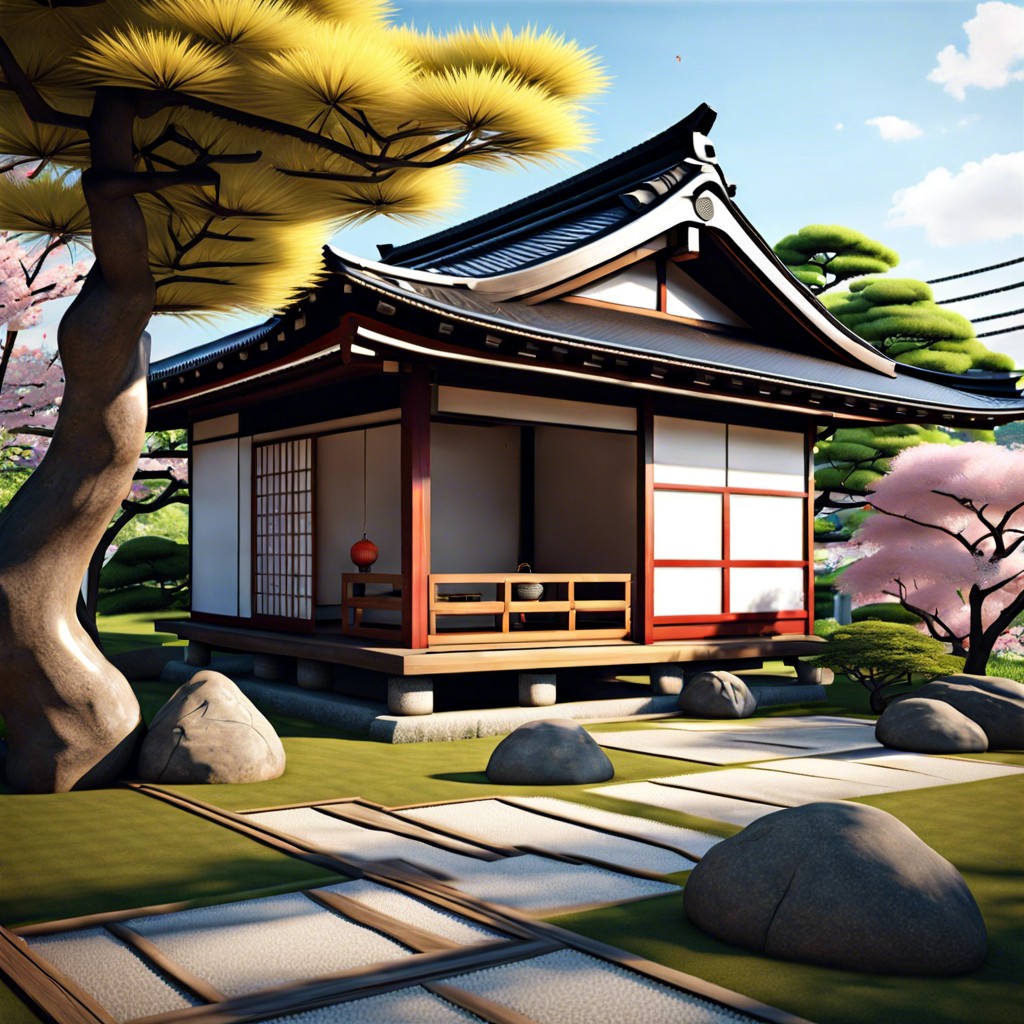
Compact garden courtyards in Japanese houses beautifully merge nature with living spaces, creating serene escapes within homes. These miniature outdoor retreats are designed for tranquility and contemplation, offering a peaceful connection to the outdoors.
Chashitsu Tea Room
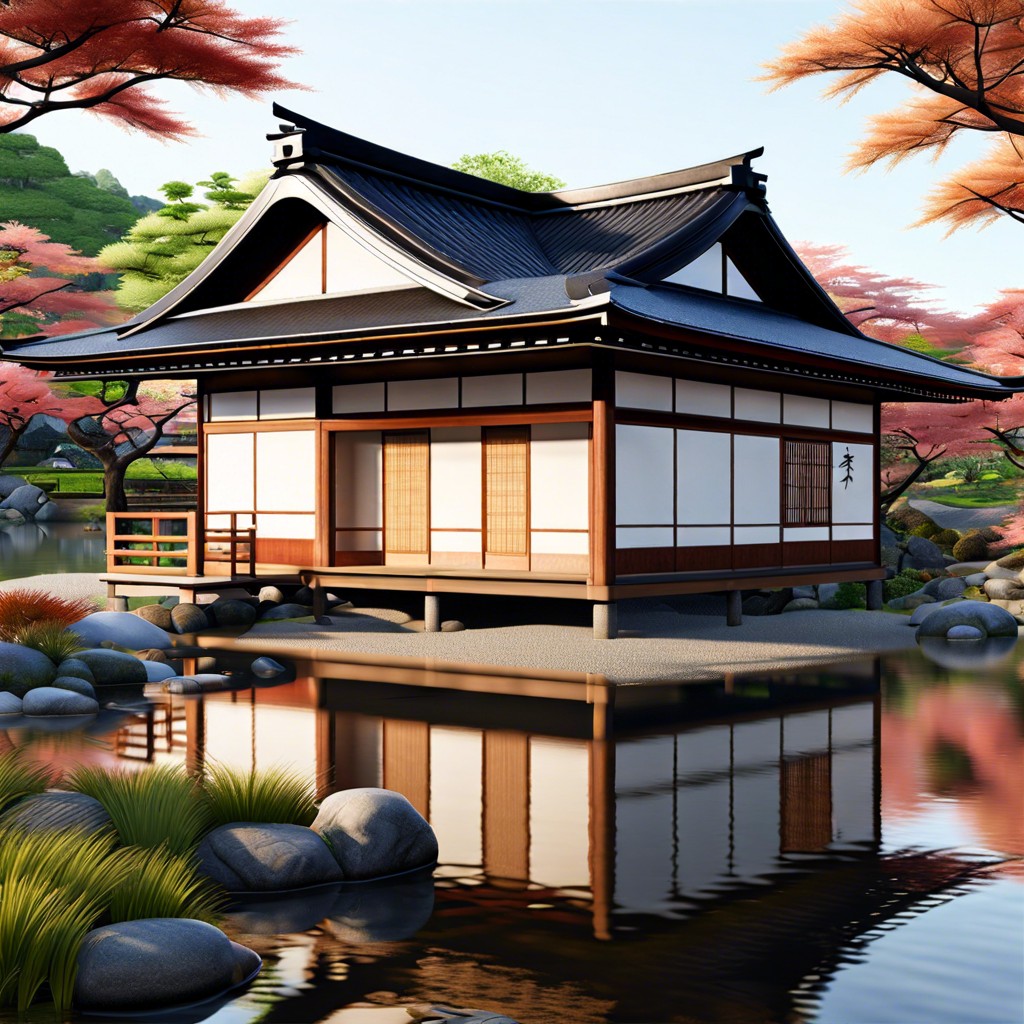
Chashitsu tea room is a traditional Japanese space designed for tea ceremonies, characterized by minimalist decor and tatami flooring. It provides a serene environment for the ritualistic preparation and consumption of tea.
Open Wood Beam Ceilings
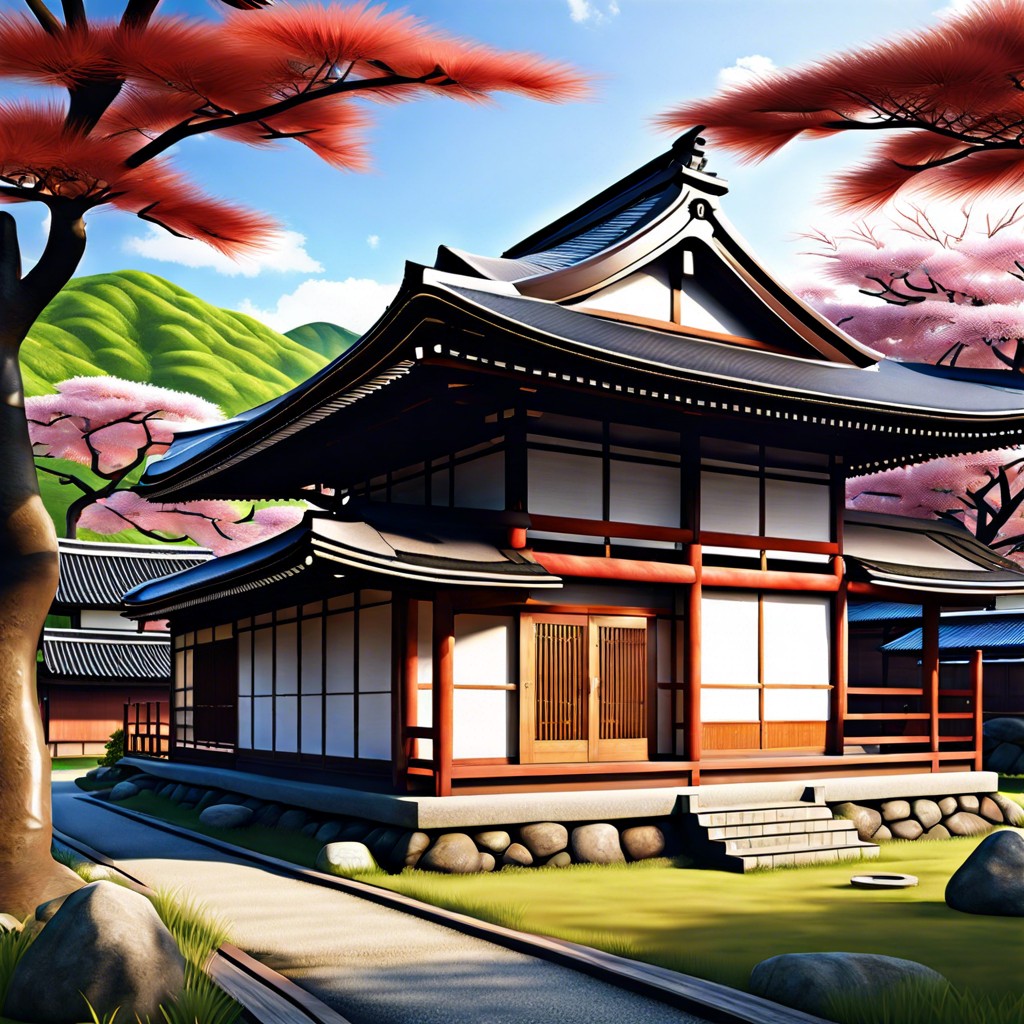
Open wood beam ceilings in Japanese houses provide a sense of spaciousness and accentuate the architecture, adding a traditional touch to the overall design. They allow natural light to flow freely and create a warm, welcoming atmosphere in the home.
Noren Entry Curtains
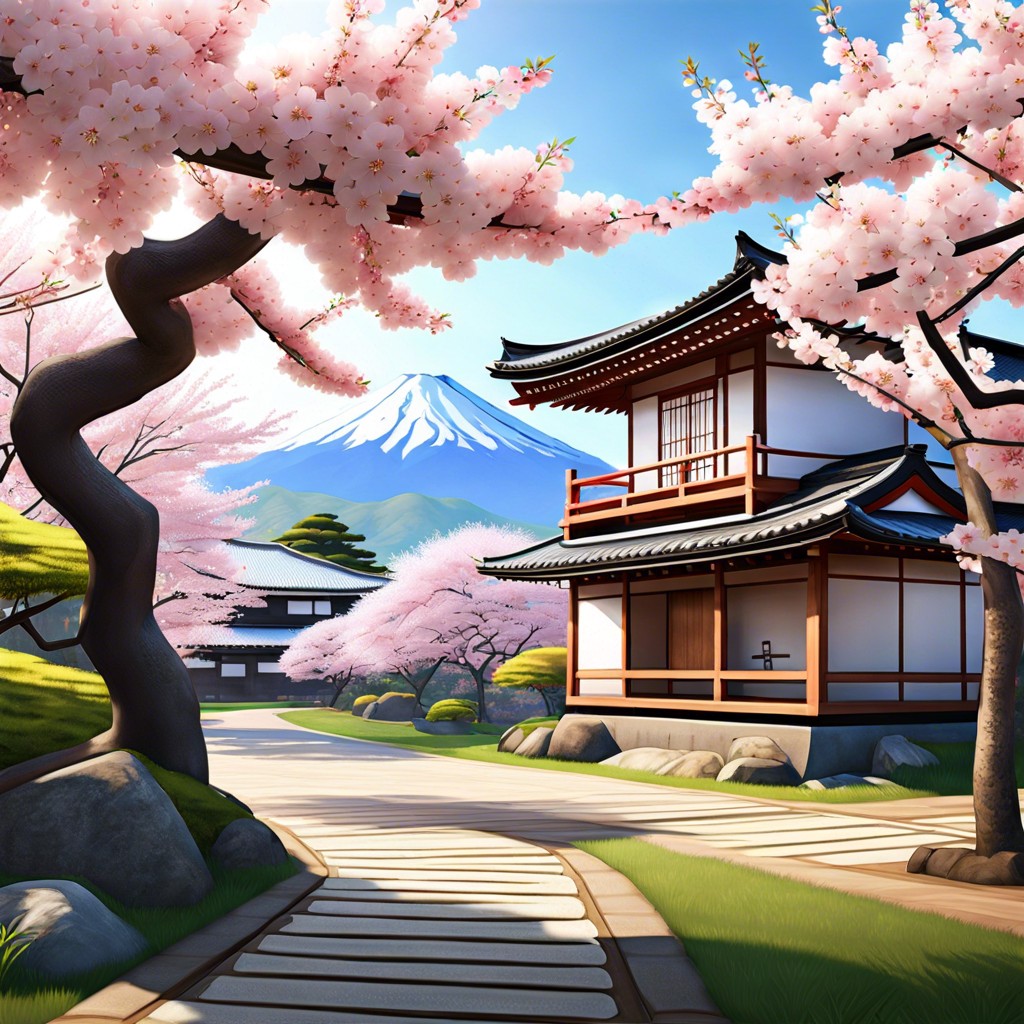
Noren entry curtains add a touch of charm and tradition to Japanese homes, elegantly dividing spaces while allowing for airflow. These fabric dividers are not only functional but also serve as decorative elements in doorways.
Paper Lantern Lighting

Paper lantern lighting adds a soft, warm glow to Japanese houses, creating a calming atmosphere and adding a touch of traditional charm. These delicate lanterns illuminate rooms gently, enhancing the ambiance of the space.
Minimalist Interiors
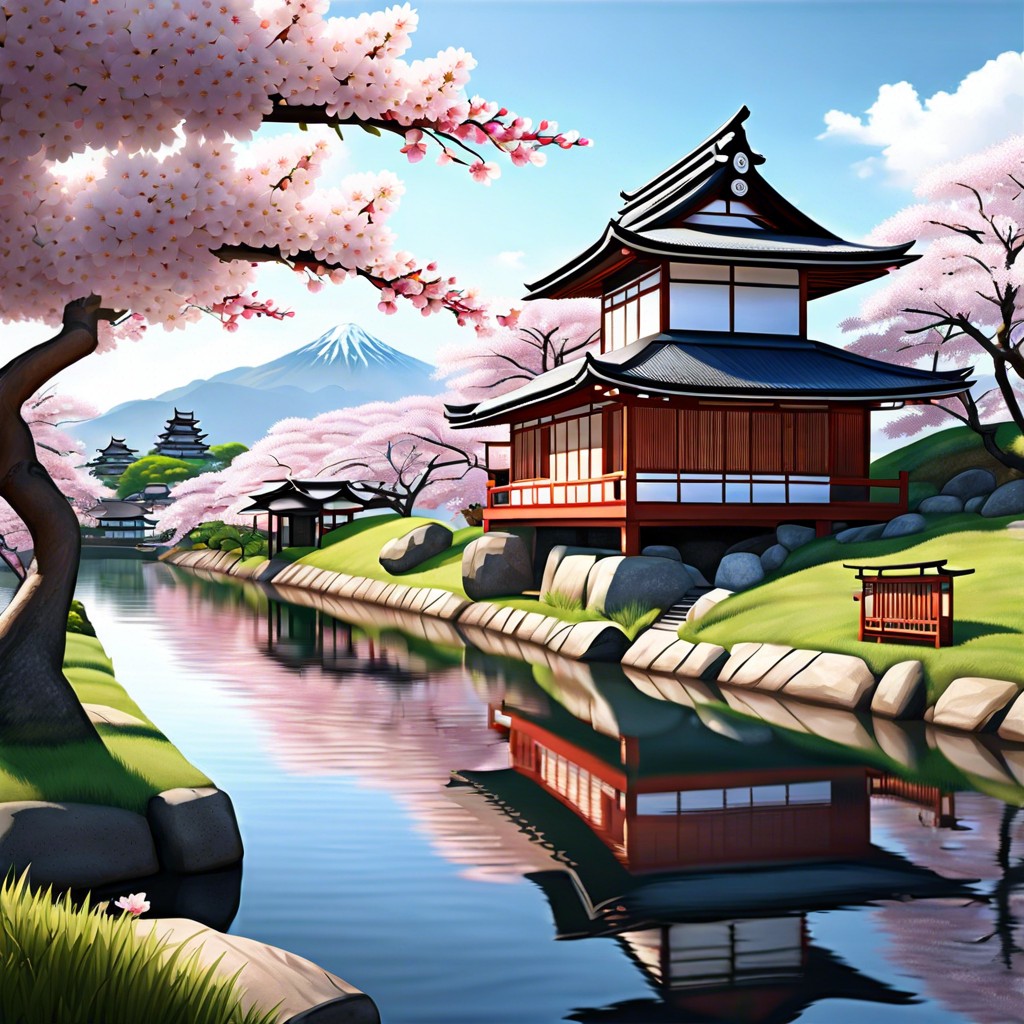
Minimalist interiors in Japanese houses focus on simplicity, clean lines, and uncluttered spaces. They aim to create a sense of calm and tranquility by using minimal furniture and decor.
Koi Pond Integration
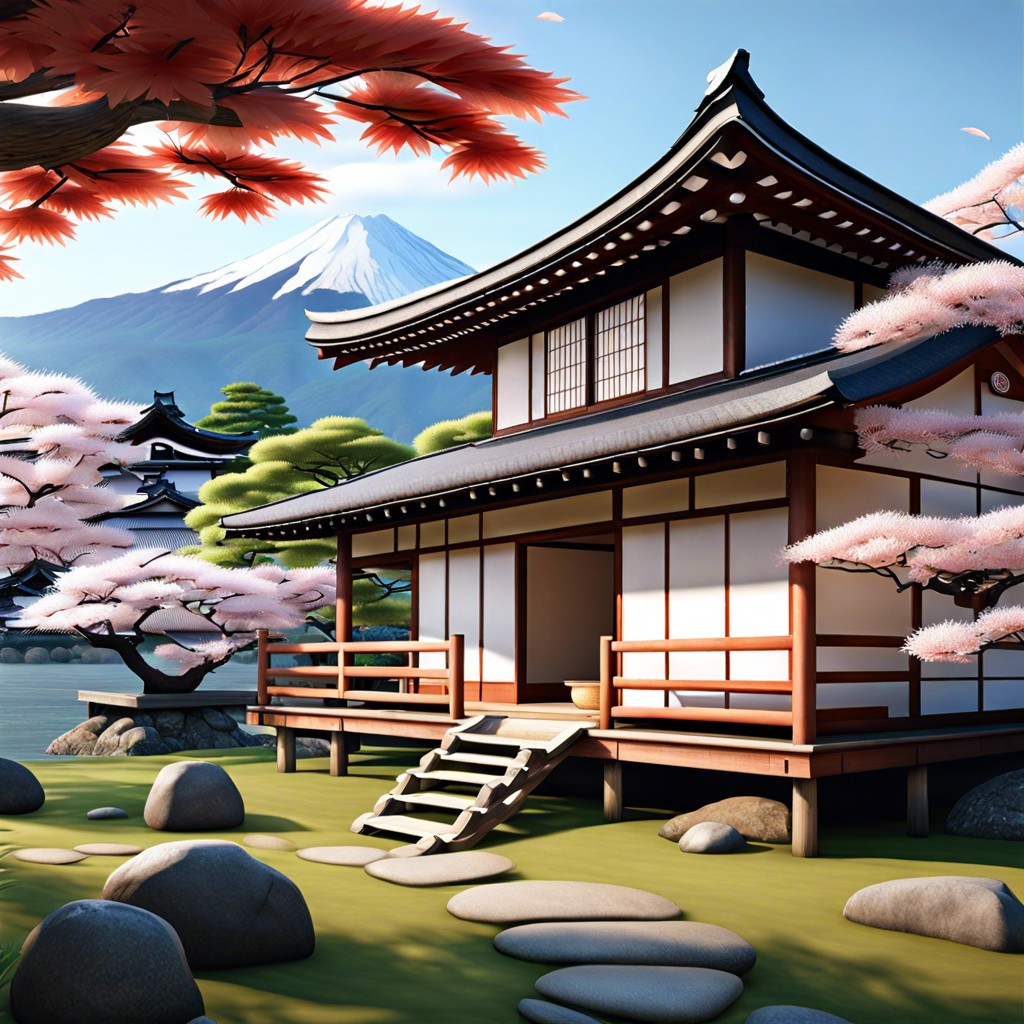
Koi pond integration adds a serene touch to Japanese homes. The ponds symbolize good luck, prosperity, and abundance.
Table of Contents




